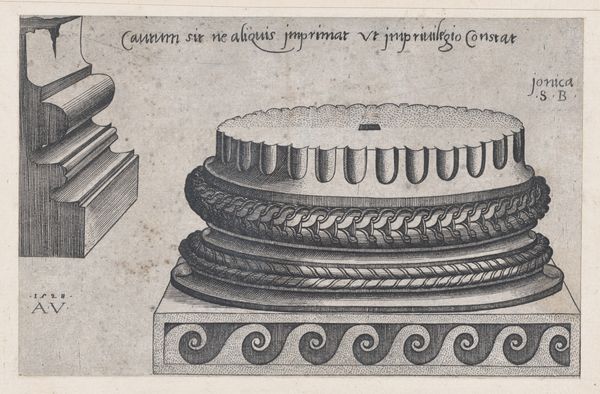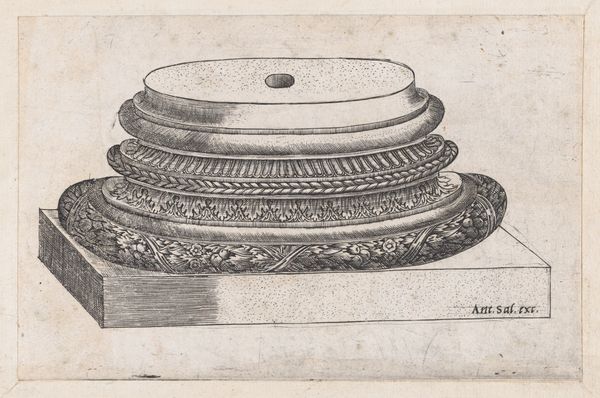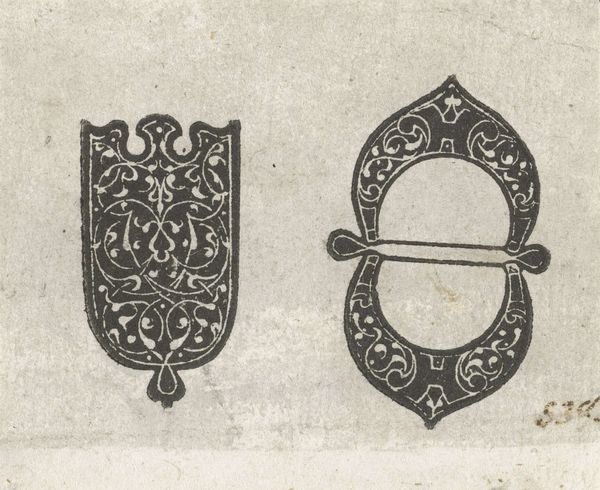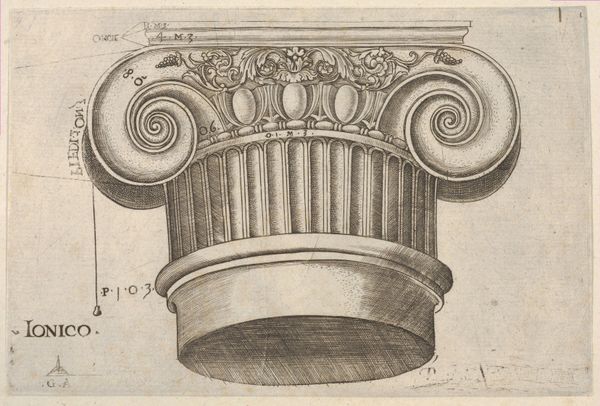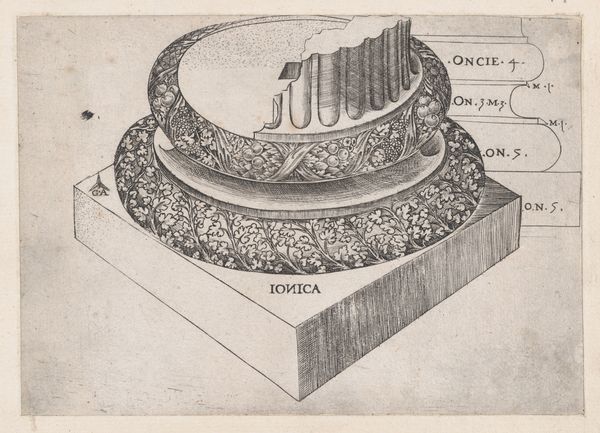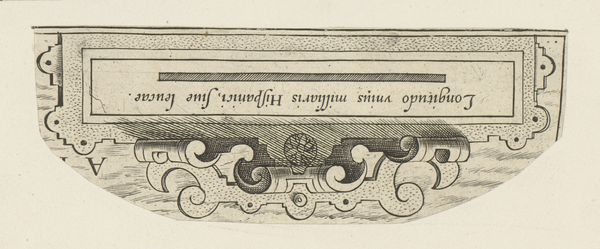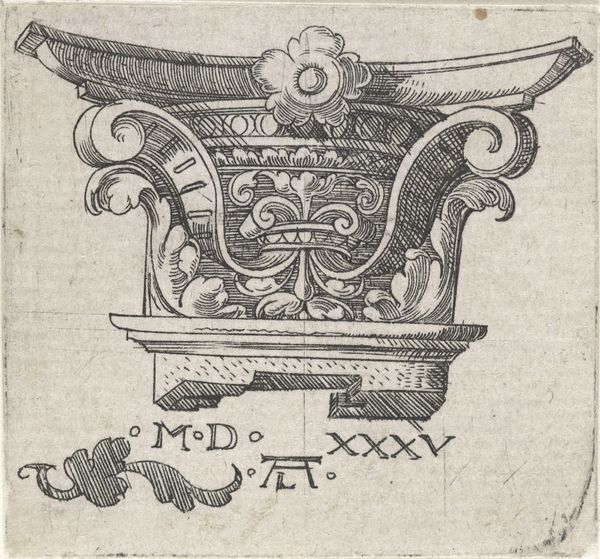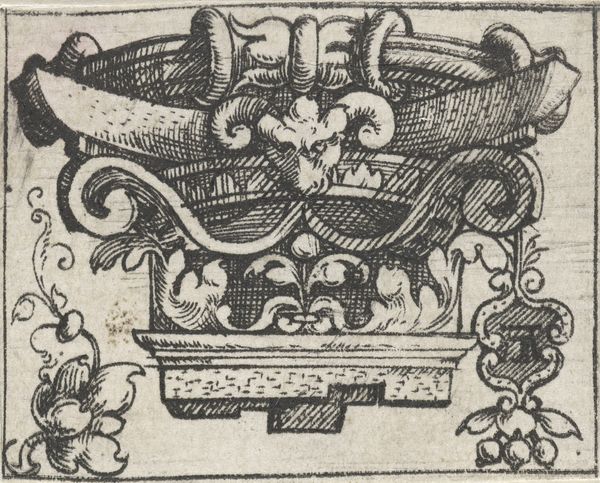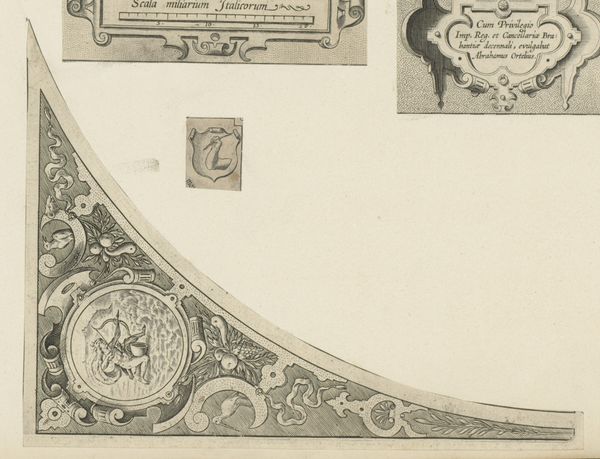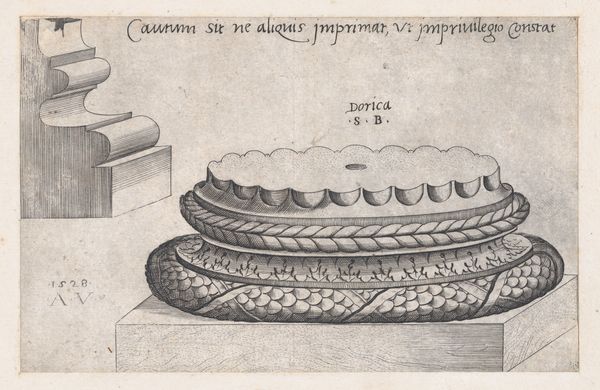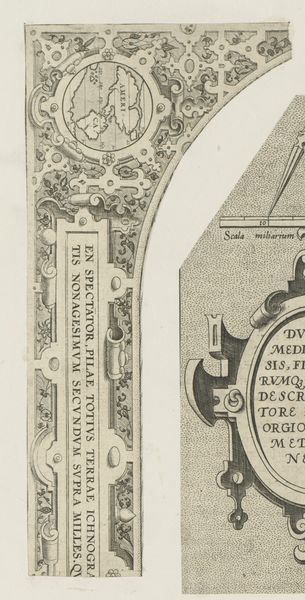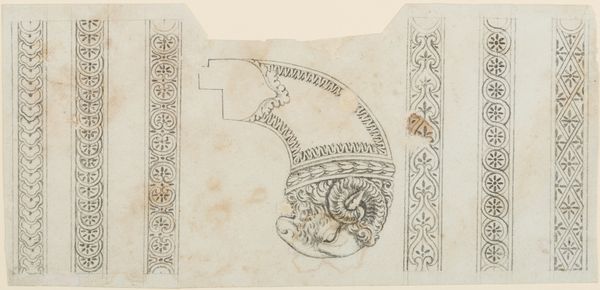
Speculum Romanae Magnificentiae: Corinthian base 1528
0:00
0:00
drawing, print, engraving, architecture
#
drawing
# print
#
form
#
11_renaissance
#
geometric
#
classicism
#
line
#
italian-renaissance
#
engraving
#
architecture
Dimensions: sheet: 4 9/16 x 7 5/16 in. (11.6 x 18.6 cm)
Copyright: Public Domain
This print of a Corinthian base was made in 1528 by Agostino Veneziano, using the technique of engraving. But why create a print of ancient architecture? Well, prints like these were part of a Renaissance project. They sought to catalogue, disseminate, and essentially revive the grandeur of Rome. The "Speculum Romanae Magnificentiae" or "Mirror of Roman Magnificence," was intended as a resource book for artists and architects. Notice the meticulous detail rendered by the engraver's burin. The texture of the stone, the intricate carvings, and even the cracks are all carefully represented. The act of engraving itself mirrors the labor involved in constructing the original architectural elements. Both require precision, skill, and time. This print then, isn't just a reproduction. It's a testament to the enduring influence of Roman design, and the skilled labor required to perpetuate it. It challenges us to consider the value and history of creative practices and aesthetics.
Comments
No comments
Be the first to comment and join the conversation on the ultimate creative platform.
